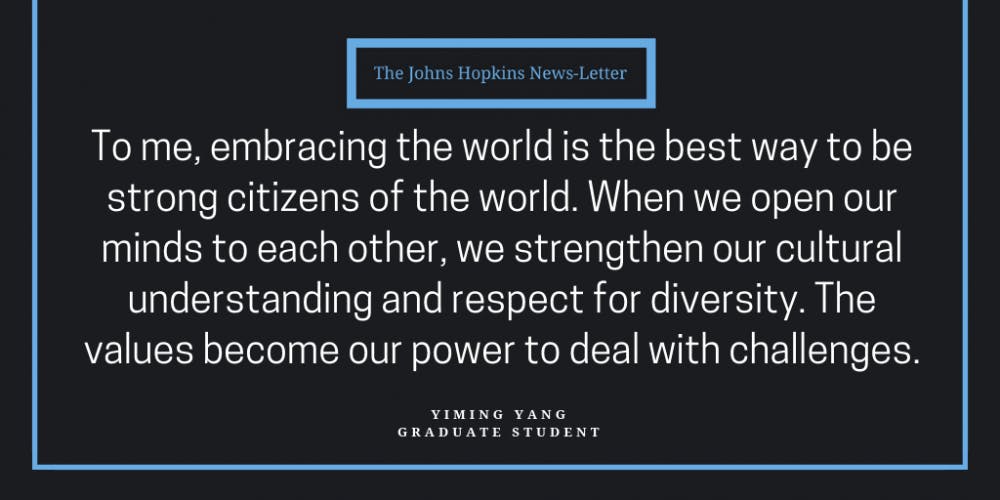The world seems to step into an “illness” of conflicts. This illness applies to disorder, emotional opposition and hatred among people, regions and governments. It not only leads to economic recession, but also results in increasingly more aggressive politics. When U.S. President Donald Trump upgrades tariffs to China, he destroys free trade between the U.S. and China. However, his voters on Twitter seem to appreciate this and believe there could be benefits from the trade war. When Boris Johnson, the new prime minister of the UK, takes his hard Brexit plan to office, he prepares to break London out of Europe. Nevertheless, nobody in government has enough power to compete with him and stop Brexit. When Narendra Modi, the prime minister of India, shows that his armies are in Kashmir, on the India-Pakistan border, he gets applause rather than criticism from Indian residents. People living in those countries, as well as affected areas, are impacted by these actions.
In each scenario, people fall together into negative emotion. They make aggressive comments on the internet, complain about issues and vote for more hawkish politicians. Many of them refuse to cooperate with or embrace another side. As a Hopkins student and also a Chinese student, I feel a sense of responsibility to talk about this topic. I hope more people will realize that these problems exist and work to change them together.
In my experience, it is difficult for Chinese people to expect these world conflicts. When Trump visited Beijing in 2017 and received a warm welcome, I talked to my grandfather about his visit. He was always interested in international politics. He thought that China gave Trump a great courtesy and impression, that the U.S. and China would continue to rely more on each other economically, ushering in a golden age that the whole world would benefit from.
Furthermore, when my grandfather read news about Brexit, he believed that British people would finally decide to remain in Europe. At that time, most Chinese media corporations provided expectations that London would continue to remain in the European Union. He also held the view that India and Pakistan would develop a friendship because they were nearby countries. The two countries had complementary resources and capital. Both sides, he believed, could benefit from cooperation if they decided to end the border conflicts.
Currently my grandfather’s expectations from a few years ago seem wrong. None of his predictions came true. However, he is not the only one who misjudges situations. His ideas represents a considerable proportion of Chinese civilians’ thoughts — they are overly optimistic.
Why do so many Chinese people hold optimistic opinions on the world? There could be two reasons. One is that China benefits from the globalization of the world. From the 1980s to current day, China’s economy has developed quickly. The country benefited from the connections between countries.
The second reason is rooted in Chinese history. China experienced a closed-door policy and wars over the last 200 years. The closed-door policy refers to policy that controls trade, restricts immigration and bans shipping from foreign countries. For example, the Qing Dynasty, the last kingdom in China, fell into recession due to its closed-door policy. In the Qing Dynasty (1600s - 1900s), China’s economy and technology lagged behind the world. Chinese national strength declined rapidly. Chinese people learned from their history that conservatives weaken national power while openness raises China up. Chinese people gradually realized that being open is the only solution to globalization. That means embracing the world, adapting to change and becoming a contributor.
Values like these do not only belong to Chinese people, but also to everyone else, no matter their backgrounds. For instance, the United Nations’ 17 Sustainable Development Goals, passed by the General Assembly in 2015, includes “partnerships to achieve the goals” of peace and prosperity. The goals have been officially signed by 193 state governments, although they have shown weakness in actual implementation.
Fortunately, great universities like Hopkins stand out. They express their voices and insist on these values. Their academics and reputations rely on openness of thinking, diversity, equality and communication. That is helpful and valuable in dealing with the current crisis — for students, society and the world. To me, embracing the world is the best way to be strong citizens of the world. When we open our minds to each other, we strengthen our cultural understanding and respect for diversity. The values become our power to deal with challenges.
Politicians can be skillful in brainwashing and guiding hatred. Through these methods, they get votes or win the support of the public. As Hopkins students, we have a responsibility to end these methods. That’s why we need to improve our abilities to distinguish between lies and truth. We need to establish our critical thinking in order to stay patient, make correct choices, reduce suspicion and establish confidence in our values.
During orientation at the Carey Business School, professors and staff tried to emphasize that “business is taught with humanity in mind.” I know this value is important not just to Carey but to all of Hopkins. Concerning my grandfather, I really hope the future proves that he is not too optimistic. Hopefully one day he will be right because of our efforts to make the world a better place. Through embracing the world, we can take our responsibility to end the international conflicts, decrease hatred and prevent possible wars in the future.
Yiming Yang is a graduate student in the Carey Business School. He is from China.

















